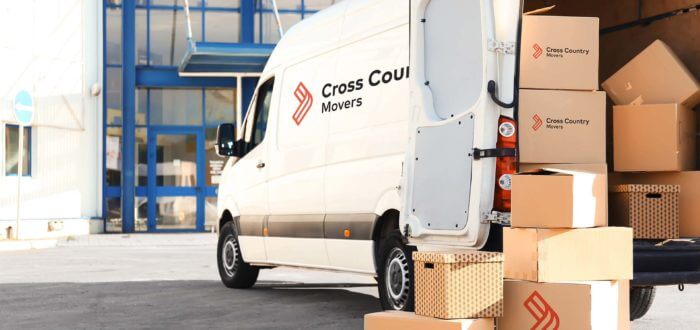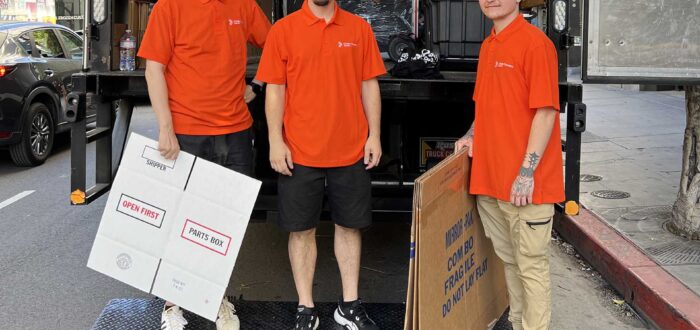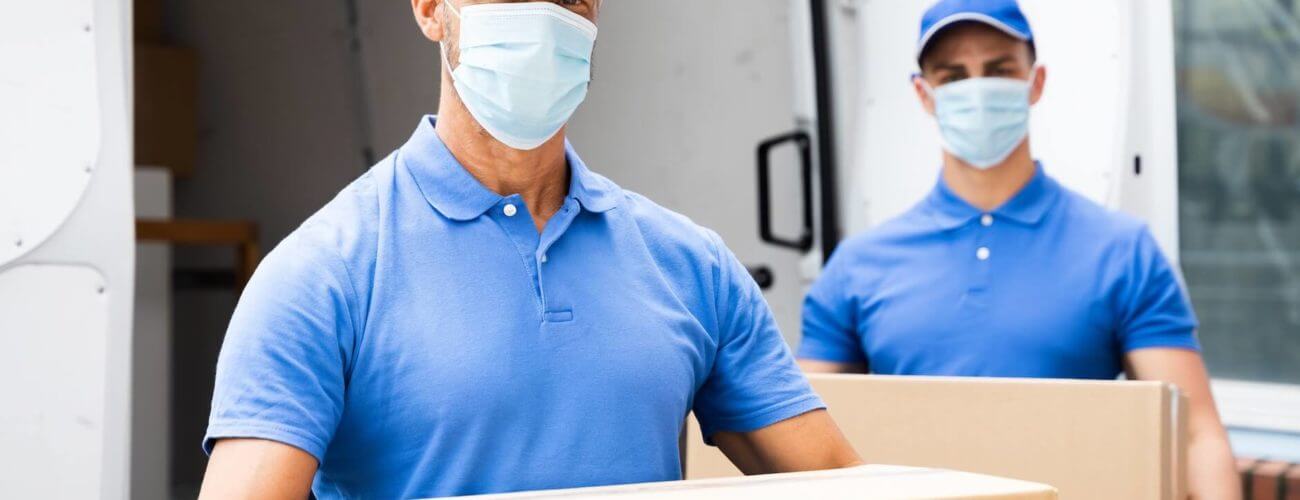

Are Movers Essential Workers During the Covid-19 Pandemic
Posted in Moving Essentials on August 19, 2021
With the spread of the covid-19 virus, many of our plans have been postponed and changed. However, many businesses just had to stay open so the country could continue to function. So if you were wondering are movers essential workers, the answer is – yes. The federal government has recognized the moving industry as necessary to operate, among other 15 industries, so people can proceed with their cross-country moving plans.
What Industries are Classified as Essential During the Pandemic in the US, or Is Moving Considered Essential?
The US government has identified 16 essential industries, including moving, that are allowing the country to keep on functioning. This list includes:
- Healthcare and public health,
- Chemical sector,
- Commercial facilities,
- Communications,
- Dams,
- The defense sector,
- Emergency services,
- Energy,
- Financial services,
- Food and agriculture,
- Government facilities,
- Nuclear reactors, materials, and waste,
- Water and wastewater system,
- IT,
- Transportation,
- Critical manufacturing.
According to federal law, all those sectors are excluded from the shutdown rules due to the spread of coronavirus. However, all states are allowed to create their own regulations associated with these industries.
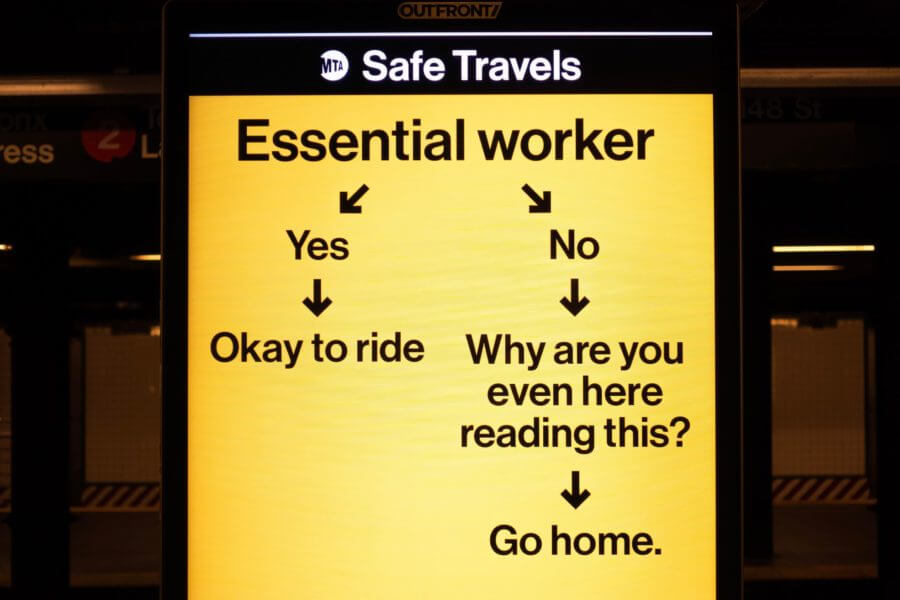
Are Movers Essential Workers? Why Are Movers Considered Essential Services?
Since the majority of relocations were already scheduled months in advance, houses sold, and agreements signed, in many cases, people don’t have any choice left than to move during coronavirus. Although many feel insecure and anxious about moving out in the time of a global pandemic, they still have to proceed with moving across the country. Here are other reasons people decide to move that could answer the question of Is moving essential.
Many People Were Forced to Plan Moving Across the Country Due to Job Losses
Unfortunately, many people were forced to resort to relocation as a consequence of job loss. Since many companies have shut down, this has also affected the workforce, and many simply had to relocate to another place, or even choose to relocate to a new city where the cost of living is considerably lower. Of course, relocating without a job is never easy to do – you have to plan every step in advance, including the relocation budget.
…While Others Decided to Take Advantage of Decreasing Property Prices in Western and Southern States
The trend of outbound moves to the western and southern states continued in 2020, too. Many people decided to take this step since property prices are considerably decreasing all over the US. In other words, for less money, potential buyers can get more square footage, a private yard, and better conditions overall. All this was especially important during the lockdown, when families had to stay inside, unable to take a walk or spend their free time outdoors, and when the boundaries of private and professional life were blurred.
No matter what your reasons to move are, whether you’re relocating to another state alone and plan to live on your own, or you’re relocating with pets, or you have to move with a newborn, here is everything you need to know about how to organize your move safely, meet all the standards to protect your health, plan to move to another city, continue with their life in the new normal conditions, and experience a stress-free move.
What Health Guidelines Are Long-Distance Moving Companies Obligated to Follow Regarding the Spread of the Coronavirus?
In order to operate without any limitations, relocation companies are required to meet all the regulations associated with covid-19 restrictions. This includes not only that their staff should wear protective equipment, like shields, masks, and gloves, during the whole relocating process, but also social distancing and regular health checks at the start of every working day. Of course, hand sanitizers are a must! Also, classified as indispensable workers, many relocation specialists took the advantage of vaccination in order to reduce any possibility to get infected to a minimum.
In case any of the relocators are feeling any symptoms of the virus, they are not allowed to continue working but are obliged to contact their doctor and stay at home until they get an official confirmation that they can get back to work.
As an Essential Industry, Long-Distance Moving Companies Are Required to Protect Their Working Areas from Spreading the Coronavirus
Aside from monitoring their workforce health and working conditions, relocation companies are also required to maintain their space according to the propositions set by the Centers for Disease Control and Prevention.
Since coronavirus is a type of virus that can survive on surfaces, following proper cleaning protocols is obligatory. For that reason, all regularly touched surfaces and items have to be cleaned several times a day, according to the previously developed cleaning protocols and routines. Also, all the instructions explaining the preventive measures and reminding the employees to behave accordingly should be displayed visibly. Of course, alcohol-based cleaning products, ventilation, and wearing protective masks are a must.
All Trucks and Storage Spaces Are Sanitized for Moving Cross Country
Although reliable companies use all protective equipment while handling boxes, and you have taken all the measures to pack your household belongings in a safe way, professional relocators still give some extra attention to cleaning their storage and trucks. After the unloading into the storage unit is done, the truck has to go through deep cleaning, and after the customer’s belongings are delivered to their address, the storage unit is also sanitized and disinfected.

Innovative Practices Long-Distance Movers Introduced to Protect the Customers and Provide Business Continuity
Faced with unexpected working conditions, the moving industry was forced to come up with innovative solutions in order to attain business continuity. Electronic contracts, phone calls, text communication, and video calls have become a standard of the industry nowadays. And here are other benefits you can use!
Instead of an In-Home Estimate, Choose a Virtual One to Reduce Contacts and Have a Safe Move
Avoiding all unnecessary contact when it comes to relocations is definitely the best course of action, and with the recently introduced innovative practices in the moving industry, this is completely attainable. Companies are leveraging artificial intelligence to boost driver safety and operational efficiency. By installing AI-driven cameras that detect distracted driving behaviors and utilizing advanced routing algorithms, they’ve achieved a 91% accuracy rate in identifying distractions and reduced accidents by 4.5% within three months.
Contactless Paying Is Another Great Option for Paying Long-Distance Movers
There is no need to pay in cash when there is an option for contactless payments using portable, wireless terminals. This payment option is also very convenient to use because there is no more need to worry about going to the bank, withdrawing cash, and organizing the whole process, when customers can simply use their card and pay for the relocation from home! That way, physical contact is reduced to the minimum, so choosing this option is definitely the safest one.
How Many Movers Can Be Present During the Move?
Depending on the size of your household, you can expect that there will be a minimum of two and a maximum of three specialists present to complete your relocation. All the staff is properly trained to handle the packed boxes and other stuff quickly, so this won’t affect the schedule on the big day. Also, the 6ft distance between the customer and relocators has to be strictly maintained, so you can be sure that everything is done to protect your health and avoid unnecessary contact.
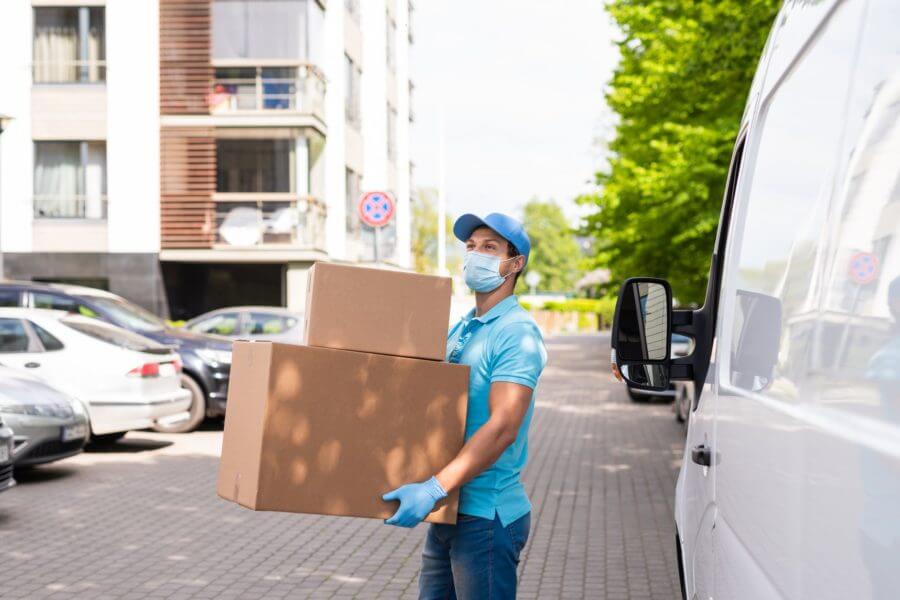
Now That We Know Whether Is Moving Essential, Let’s See the Possible Reasons for Canceling the Move
Since there is a possibility some members of your family or even some of the relocation specialists get sick, the move will be canceled or rescheduled. When it comes to costs related to cancellation, even in regular circumstances the customer has the right to cancel the relocation without penalties according to the contract conditions. Still, keep in mind that most policies imply keeping the deposit, so ensure to check this part of the contract.
However, the possible reason for canceling the move can be the rising number of infected people in your area. So, if your relocation is not that urgent, consider canceling it because the most effective way to protect yourself and your family from infection is to avoid unnecessary contact.
Check With the Cross Country Moving Company What Happens if You Have to Cancel or Reschedule the Move Due to a COVID-19 Infection
Unfortunately, since there is a possibility of getting infected by the coronavirus looming over our heads, it is highly recommended to consult your dedicated agent about what happens if you have to cancel or reschedule the relocation. Moreover, it would be best to put it in the contract, where all the terms and conditions will be defined. If the company refuses to provide you with information or to sign the contract which contains those terms, you should consider finding another one, since this is an obvious indicator you’ve bumped into a relocation scam.

How to Choose Reliable Cross Country Movers in Times of the Covid-19 Breakout?
Choosing a trustworthy company to handle your relocation process is even more important now than ever since we all have to respect and follow strict health regulations in order to suppress the spread of coronavirus. So, this time, the protective measures they apply will be just as deciding of a factor as the range of cross-country moving services the company can provide when choosing the movers to help you move cross-country, and relocate efficiently.
Don’t hesitate to ask the company about the protocols when it comes to relocations during covid-19. Explore if their employees are required to wear protective masks and gloves, how they maintain their storage units, and what your obligations are. Also, ensure to check how they protect items in storage units during the pandemic.
Don’t Let the Panic Overwhelm You and Try to Fulfill Your Plans Using Cross-Country Moving Services
Although those conditions are not regular, still don’t let the panic overwhelm you. Remember to explore all the crucial details, like checking if a relocation company is legitimate. Since this is one of the most common relocation mistakes, it would be great to avoid it and learn how to prepare for movers properly. And once the relocation is done, don’t forget to tip the relocation specialists for their hard, and dedicated work, because they still helped you to fulfill your plans.
FAQ
Are Movers Considered Essential Workers During Natural Disasters or Emergencies?
Yes, cross-country movers are typically considered essential workers during natural disasters or emergencies. They play a critical role in helping people evacuate their homes, transport their belongings to safer locations, and assist in the recovery process after the emergency has passed. In many cases, they may work alongside other essential workers such as emergency responders and utility workers to help ensure the safety and well-being of affected individuals and communities.
Are Moving Services Available During Public Health Emergencies?
In general, cross-country moving services are likely to be available during public health emergencies, as long as they are considered essential and can be operated in a manner that is consistent with appropriate health and safety guidelines. However, the specific availability of moving services may depend on the severity of the emergency and the measures that have been put in place to control its spread. During a public health emergency, movers may need to implement additional protocols such as wearing personal protective equipment, sanitizing equipment and vehicles, and practicing social distancing to minimize the risk of spreading illness or infection.
How Can Essential Workers Find and Choose Reputable Moving Companies During Emergencies?
Essential workers can find and choose reputable long-distance moving companies during emergencies by doing their research, asking for referrals, and verifying credentials. It is important to research potential moving companies online, looking for reviews and ratings from previous customers. Asking for referrals from trusted sources such as colleagues, friends, or family members can also be helpful. Essential workers should also verify that the cross-country moving company has proper licenses, insurance, and certifications and that they comply with all relevant regulations and guidelines.
How Can Essential Workers Prepare for a Move During Emergencies and Ensure a Safe and Efficient Process?
Essential workers can prepare for a move during emergencies and ensure a safe and efficient process by taking several steps. First, it is important to communicate with the cross-country moving company and discuss any specific requirements or concerns related to the emergency situation. Essential workers should also pack their belongings carefully and label boxes clearly to make the moving process as smooth as possible. Additionally, it may be helpful to create an inventory of all items being moved and to take photographs of valuable or fragile items in case of damage or loss.
How Can Essential Workers Ensure Their Personal Safety and Hygiene During a Move During Emergencies?
Essential workers can ensure their personal safety and hygiene during a move during emergencies by taking several precautions. First, they should wear appropriate personal protective equipment such as masks and gloves, and wash their hands frequently with soap and water or hand sanitizer. Essential workers should also practice social distancing and minimize contact with surfaces and individuals as much as possible. Additionally, they should sanitize their belongings and work areas regularly and avoid touching their face or eyes.




